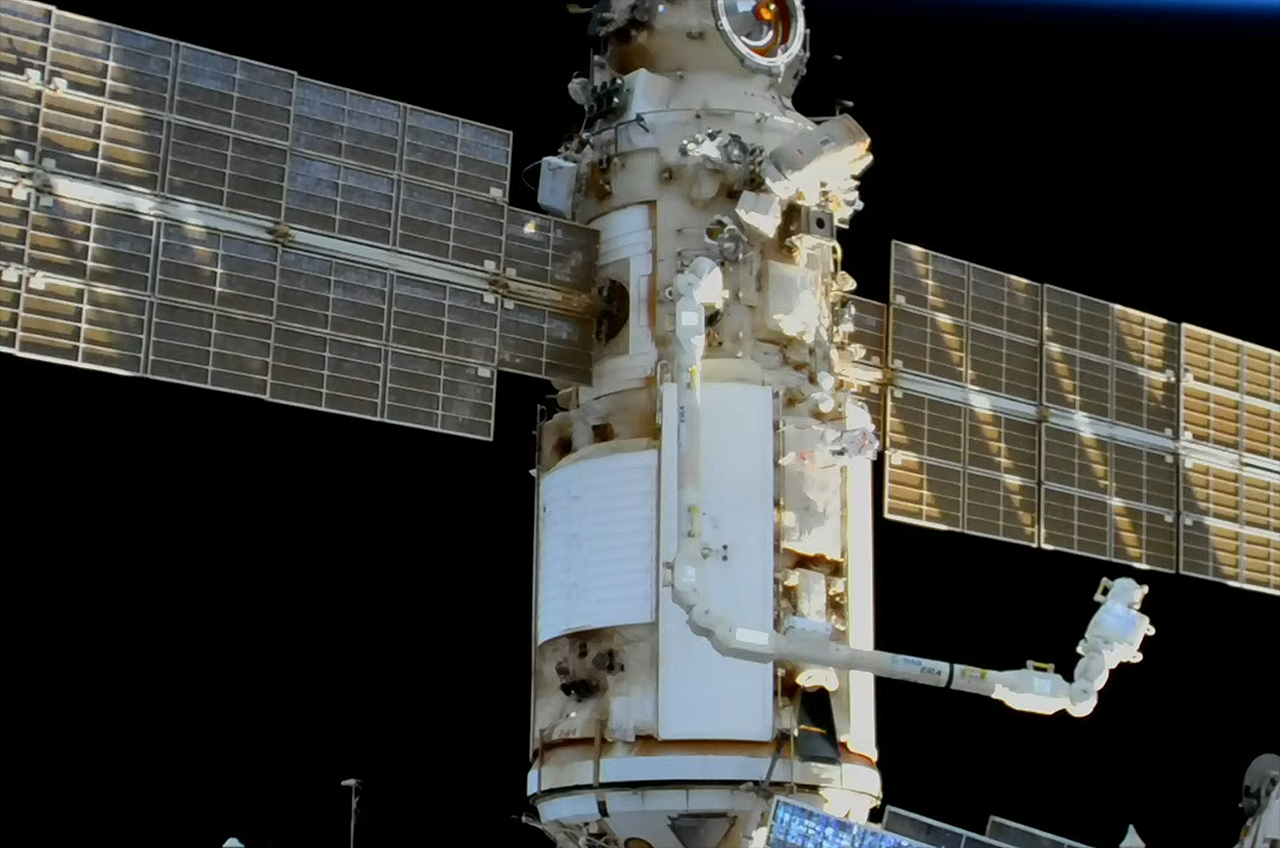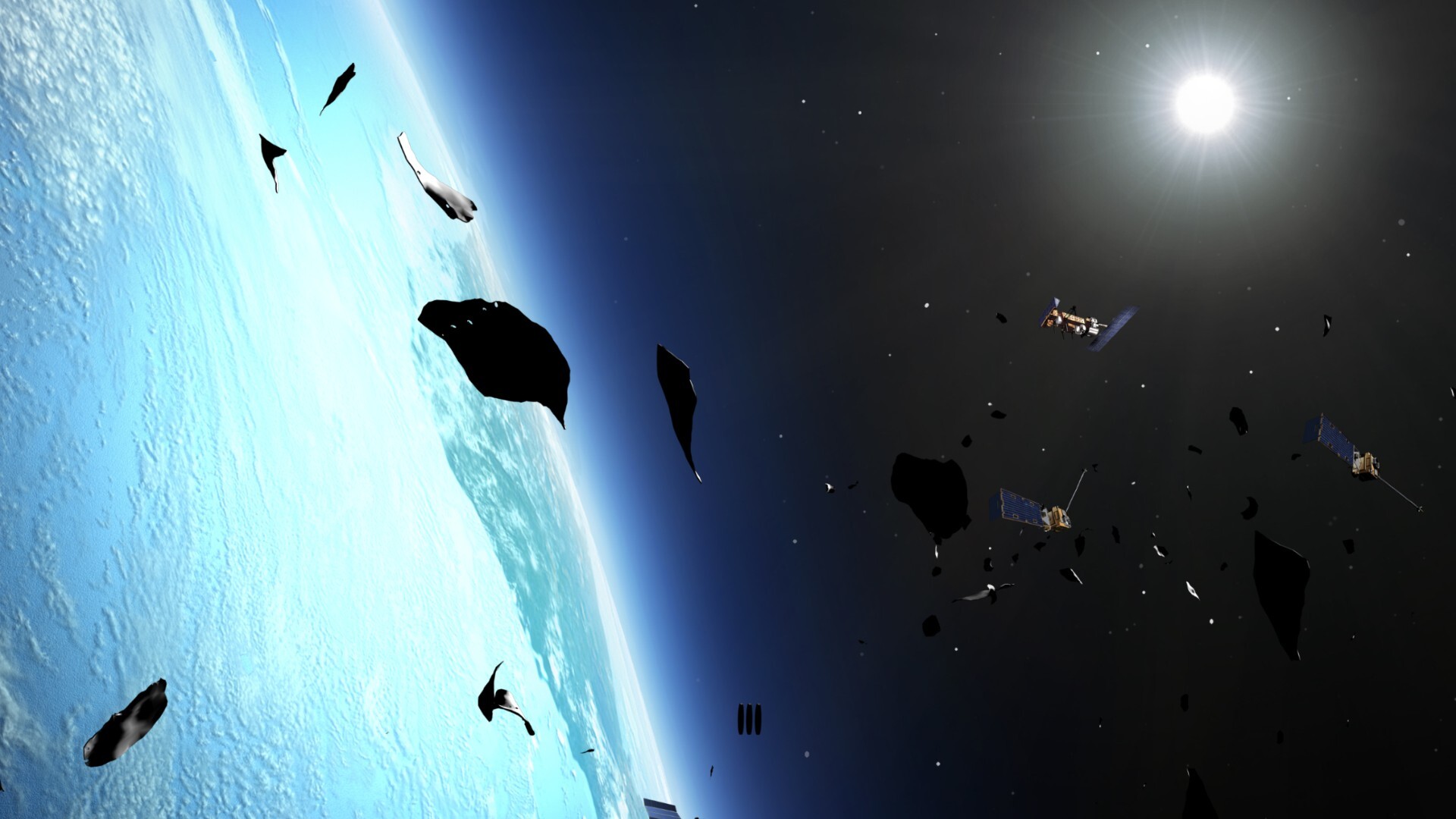Spacesuit power problem cuts Russian spacewalk short outside space station
Mission Control ordered cosmonaut Oleg Artemyev back inside after his spacesuit's battery power fluctuated unexpectedly.
A Russian spacewalk outside the International Space Station was cut short Wednesday (Aug. 17) after a cosmonaut experienced an electrical problem with his spacesuit.
Moscow Mission Control ordered Expedition 67 commander Oleg Artemyev back to the airlock after he reported a voltage fluctuation in the battery power for his Orlan spacesuit.
"Drop everything and start going back right away!" Vladimir Solovyov, a former cosmonaut and the flight director for the space station's Russian segment, radioed to Artemyev during the spacewalk. "Oleg, go back and connect to station power."
More: Live updates from the International Space Station
In pictures: The most memorable spacewalks in history
Although Artemyev was not in any immediate danger, were his spacesuit's power to cut off completely, he would have also lost the ability to communicate with his fellow spacewalker, Denis Matveev, and flight controllers on the ground until he was able to plug back into the power supply on the International Space Station.
"I copy and understand," said Artemyev, as he began his way back to the airlock on the space-facing side of the Poisk mini-research module, where he and Matveev began their spacewalk at 9:53 a.m. EDT (1353 GMT).
"I think we need some solar panels on the Orlans so we can recharge during the [extravehicular activity]," Artemyev said after reentering the airlock almost two and a half hours into the planned 6.5-hour spacewalk.
Breaking space news, the latest updates on rocket launches, skywatching events and more!
Artemyev and Matveev, both of Russia's federal space corporation Roscosmos, had been sent outside the station to continue outfitting a European robotic arm that had been launched to the orbiting complex in July 2021.
Before their outing was curtailed, Artemyev and Matveev had successfully installed two cameras on the elbow areas on the European Robotic Arm (ERA) and removed thermal insulation and a launch restraint from one of the two end effectors or "hands" at opposite ends of the arm.
The two cosmonauts had also been tasked with relocating an external control panel for the arm from one operating area to another and testing a rigidizing mechanism on the arm that will be used to facilitate the grasping of payloads. Those objectives will now be deferred to a future spacewalk.
Once fully configured, the European Robotic Arm will be used to move payloads and equipment outside of the the Russian segment of the space station. The ERA, provided by the European Space Agency, is joining the Canadian-built Canadarm2 robotic arm and the Japanese Kibo arm that are already supporting maintenance, operations and research on the exterior of the orbiting complex.
After waiting for the robotic arm to be maneuvered to its stowed configuration, Matveev joined Artemyev back inside the airlock, marking an end to their excursion. The spacewalk was completed at 1:54 p.m. EDT (1754 GMT), 4 hours and 1 minute after it began.
This was the seventh spacewalk for the year and 252nd supporting the assembly, upgrade and maintenance of the International Space Station since 1998. It was the seventh EVA for Artemyev, who now has logged 45 hours and 45 minutes working in the vacuum of space, and the third for Matveev, who has spent 18 hours and 20 minutes on spacewalks.
Follow us on Twitter @Spacedotcom or on Facebook.

Robert Pearlman is a space historian, journalist and the founder and editor of collectSPACE.com, a daily news publication and community devoted to space history with a particular focus on how and where space exploration intersects with pop culture. Pearlman is also a contributing writer for Space.com and co-author of "Space Stations: The Art, Science, and Reality of Working in Space” published by Smithsonian Books in 2018.
In 2009, he was inducted into the U.S. Space Camp Hall of Fame in Huntsville, Alabama. In 2021, he was honored by the American Astronautical Society with the Ordway Award for Sustained Excellence in Spaceflight History. In 2023, the National Space Club Florida Committee recognized Pearlman with the Kolcum News and Communications Award for excellence in telling the space story along the Space Coast and throughout the world.


